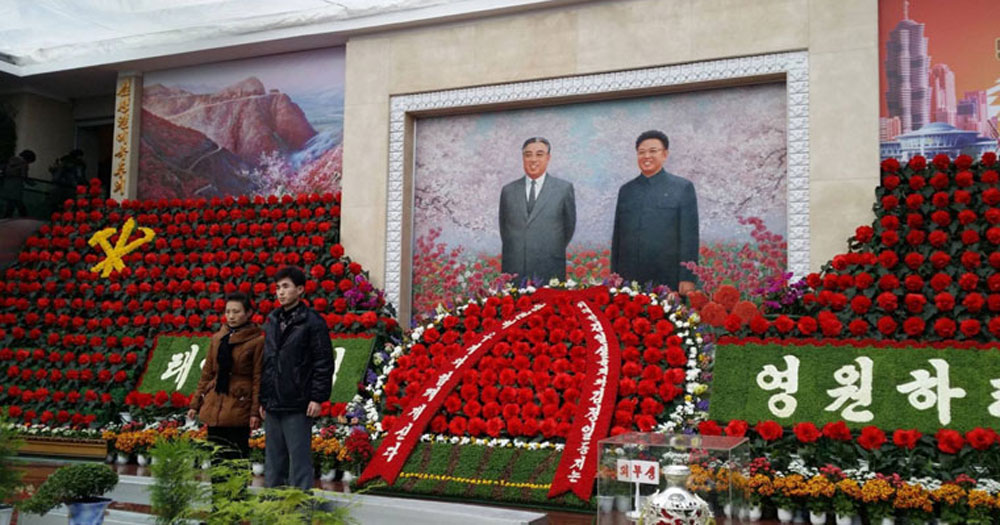In February, I spent six days in The Democratic People's Republic of Korea, a.k.a. North Korea, possibly the most despised and caricatured country in the world today.
Young Pioneer Tours, the company that conducted the tour, was the very same agency that American student Otto Warmbier signed up with a month prior to my arrival. We were assured that his arrest and detention was not arbitrary and that we had nothing to worry about, as long as we observed basic rules on etiquette and propriety.
Coming in from Beijing via train, the capital city of Pyongyang strikes one as clean, pollution-free, with wide boulevards and very few vehicles. Most residents commute by buses and subway trains which were built in the 1970s and expanded in 1987. Noticeably absent were armed guards and the busy rush of commerce.
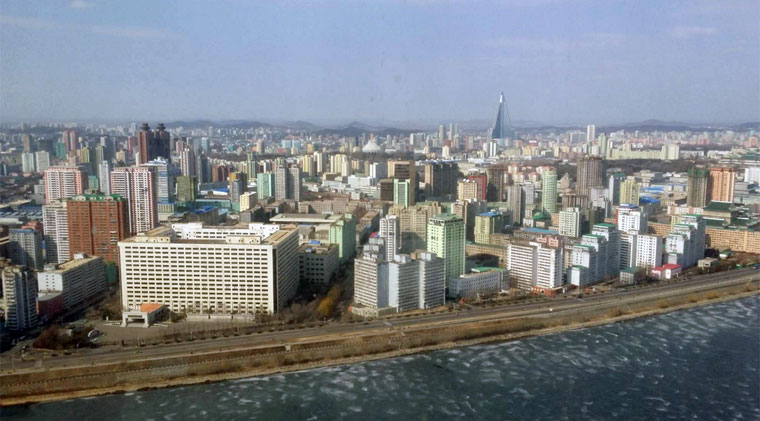 The pyramid-shaped building sticking out is the infamous 105-storey Ryugyong Hotel that hasn't finished construction since 1987.
The pyramid-shaped building sticking out is the infamous 105-storey Ryugyong Hotel that hasn't finished construction since 1987.
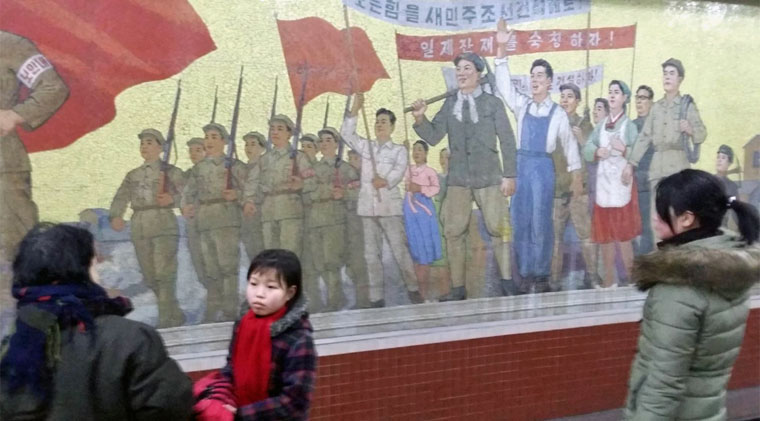 Just another typical mural.
Just another typical mural.
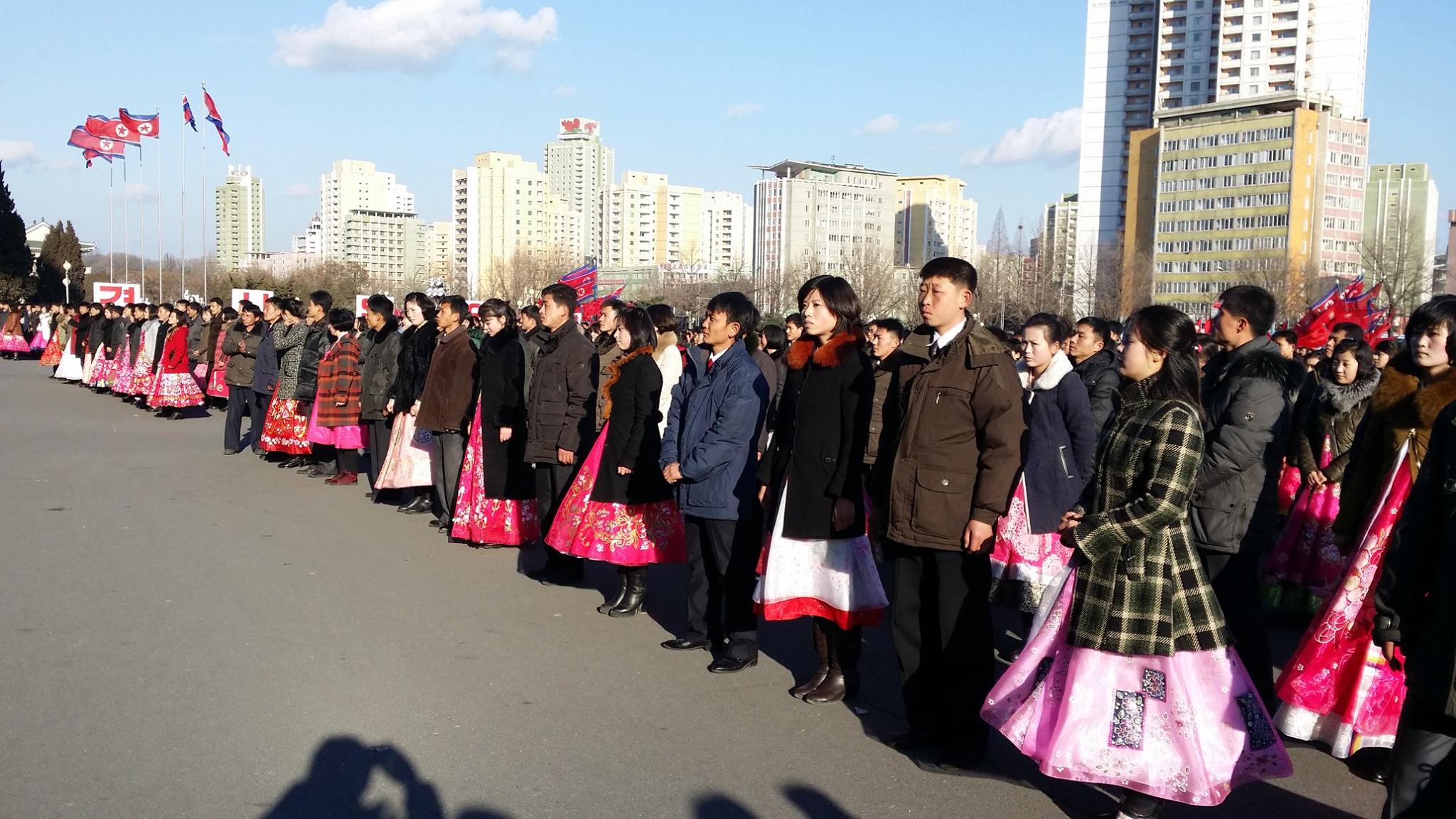 Locals lining up to dance on the streets.
Locals lining up to dance on the streets.
State controls everything
The country operates as a totalitarian socialist state. Everything is directly or indirectly owned by the State. Salaries are incredibly low, but education and healthcare are free. Working hours are regulated to allow workers ample rest and leisure.
Newly married couples are guaranteed housing and more babies are encouraged. Most homes use solar panels and do not have 24-hour-electricity, but there are no beggars or destitute people, at least not in Pyongyang. Everyone in the capital looked decidedly middle class. The taxis looked new too.
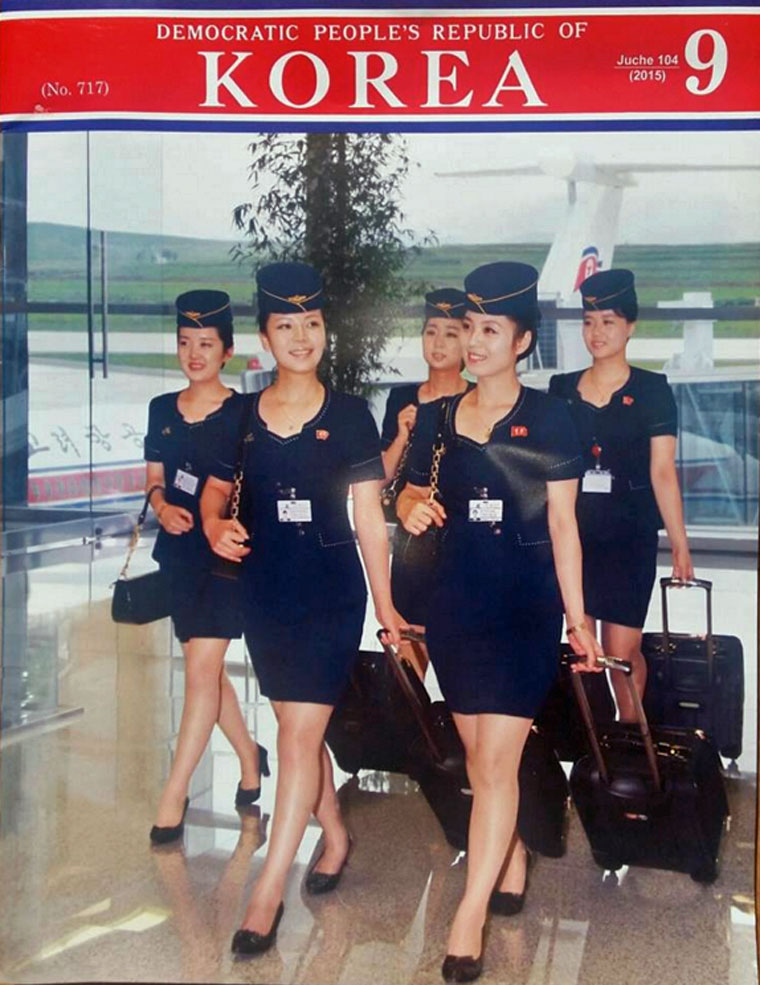 A North Korean publication.
A North Korean publication.
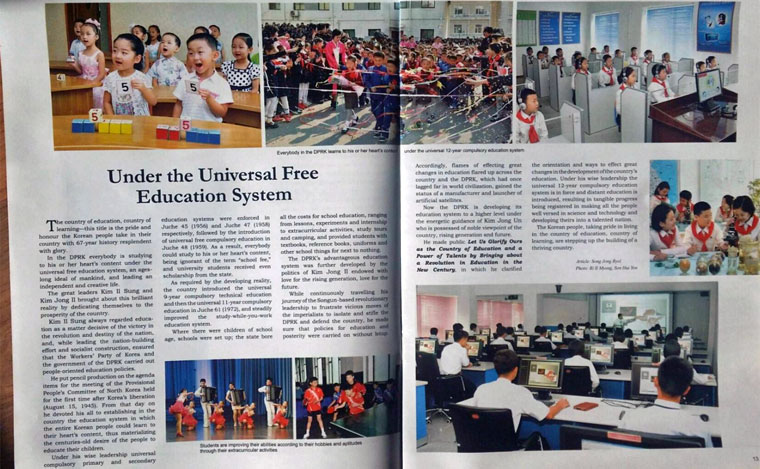 What you find inside the publication.
What you find inside the publication.
Citizens are indoctrinated from birth to worship the country's founding father Kim Il Sung, whose trilogy of heroic acts -- the revolutionary victory over Japanese Occupiers in 1945, battling the US-led Allied Forces in the Korean War from 1950 to 1953 and the rebuilding of the nation after its destruction from the wars -- have immortalised his and his children's places as undisputed Supreme Leaders of the nation.
All images and statues of the leaders are treated with the same reverence as one would with images of the King in Thailand or Jesus Christ in a church. Meanwhile, Singapore has passed a recent ruling to curb the commercial usage of Lee Kuan Yew's image and likeness.
Mandatory military service was abolished last year, but the majority of young adult males continue to volunteer in the armed forces.
Movement within the country is restricted (a permit is required to enter Pyongyang), mobile phone usage is restricted to local calls and texts (no Internet, no iPhone and no Samsung) and travel outside of the country for ordinary citizens is prohibited. Imagine Communist China in the early 1980s.
Signs of modernity
However, there are now signs that consumer capitalist tendencies are creeping in. Supermarket-styled shopping is becoming popular with an emerging middle-class.
In our time in Pyongyang, we rode the metro with the locals, attended the celebrations of Kim Jong Il's birthday and visited places where the people there hung out. North Koreans generally responded with smiles when cameras were pointed in their direction.
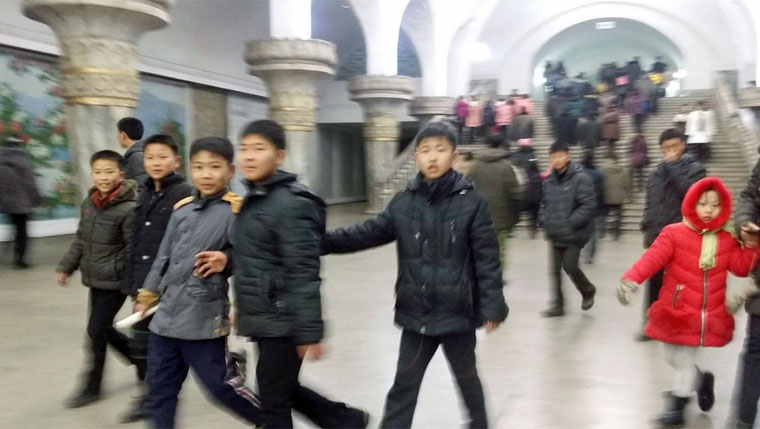 North Korean kids.
North Korean kids.
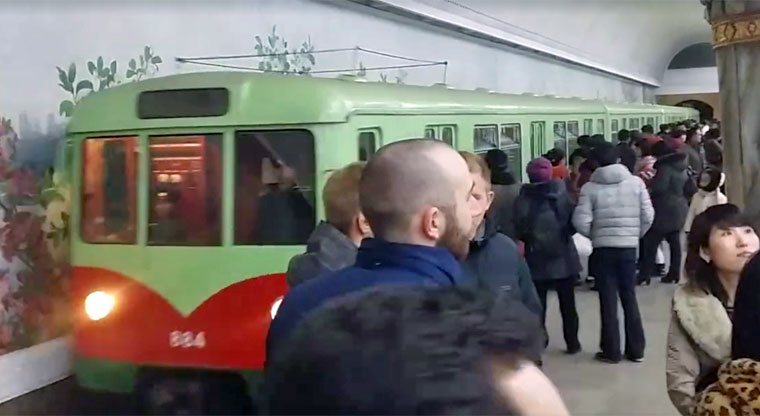 The version of MRT.
The version of MRT.
Detentions of foreigners are very rare, but they do happen, as Otto Warmbier learned in bitter fashion after being sentenced to 15 years of hard labour for stealing a banner from the staff floor of the Yanggakdo Hotel, which was the same hotel I stayed in. He is expected to serve a fraction of his sentence, as did previous foreigners convicted and detained so far.
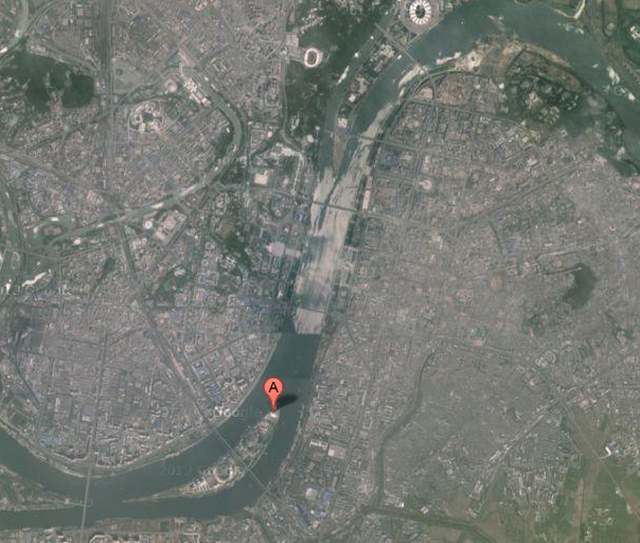 The hotel visitors stay in is right smack in the centre of the city.
The hotel visitors stay in is right smack in the centre of the city.
North Korea is also one of those countries in the world where it is perfectly cool to say "F*%k America!", "Down with US Imperialism!". Anti-US propaganda posters retailing in gift shops were instant hits with the Europeans and Canadians travelling in my tour group. And not everything is serious and solemn here. The North Koreans enjoy a good beer and a spontaneous joke like everyone else.


For the most closed society in the world, customs clearance in and out of the country was surprisingly hassle-free.
I did not have to smuggle any of my photos and videos out. The military officer at the border combed through ALL the contents in my Samsung Note 3 phone, but he seemed more interested in my pictures of Singapore. All 15 of us in the group crossed safely back into China without any confiscation of items or deletion of digital files, although travellers into North Korea should note that there is a list of prohibited items, not least of which are the Holy Bible and pornography.
Propaganda drives perceptions
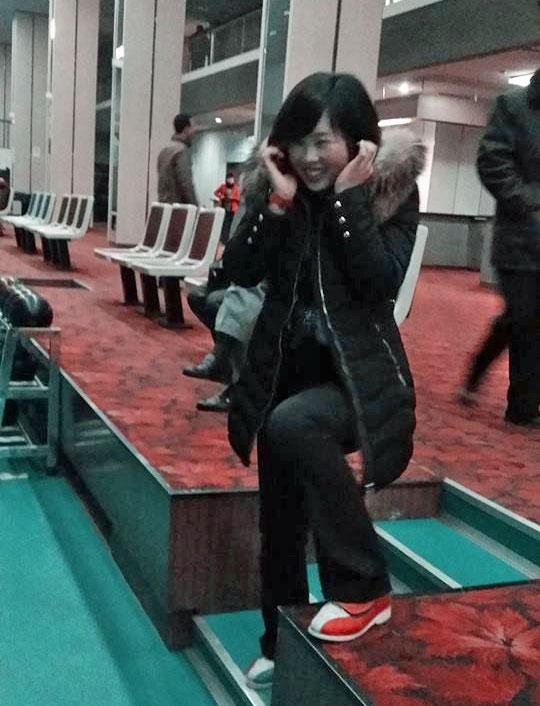 Just a North Korean teenager on the phone.
Just a North Korean teenager on the phone.
But the most valuable lesson I took from my trip was never to underestimate the insidious power of propaganda in shaping the minds of people from both within and outside of the country.
I reckon about 80 percent of what we hear or read about North Korea are Western-influenced propaganda, especially depictions of a brutalised and impoverished population who behave like zombies.
Here are two examples: This and this.
And most of what the North Koreans hear and read about their own country is aggrandised propaganda -- generated by their own government.
Misrepresented by the international media and misinformed by their own media, the citizens of DPRK have become collateral victims of this protracted Cold War standoff.
North Korea needs more tourists
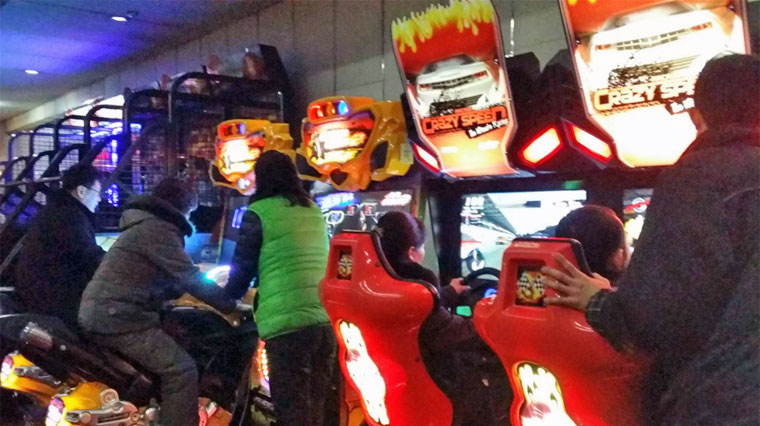 An arcade in North Korea.
An arcade in North Korea.
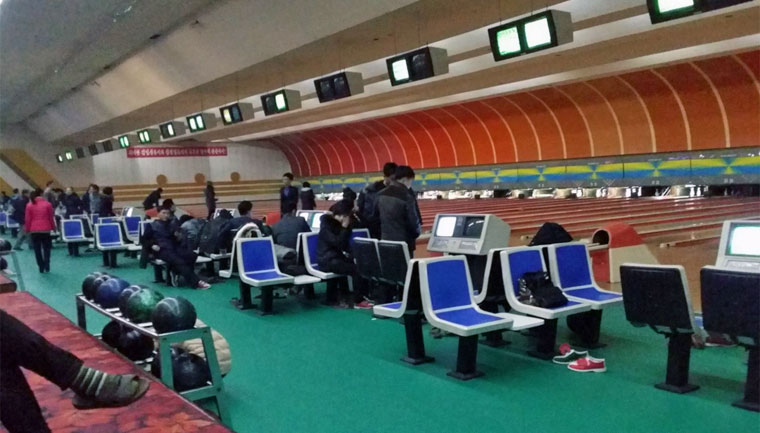 A bowling alley in North Korea.
A bowling alley in North Korea.
Despite being warned of the dangers, about 5,000 Westerners and more than 50,000 Chinese visit North Korea every year.
In April, hundreds of international participants are expected for the Pyongyang Marathon. Sure, there are inherent risks of offences being committed unknowingly, but are the consequences any more severe than those faced by misbehaving tourists in Saudi Arabia, Iran or elsewhere?
And what about accusations that hard tourist currency help fund the regime's nuclear program and the suppression of its people?
In a response to Japan Times, Gareth Johnson of Young Pioneer Tours said: "Tourism is a speck on the national economy. We don’t prop up regimes. The money we spend pays waitresses, bartenders, chefs, tour guides, receptionists at hotels. They’re equivalent of the middle class... the money trickles down. Waitresses get tips from us and go to markets and spend money and people at markets send that money to relatives."
Ultimately, the North Koreans whom we met were just ordinary folks made to live in circumstances not of their choosing. They were curious about the outside world, about the latest gadgets and technology, and they wanted no more than to be understood and respected as citizens of the DPRK. In this regard, more people-to-people cultural interaction is needed to open hearts and minds, not less.
[related_story]
For more photos and videos of The Democratic People's Republic of Korea, go to this Facebook page.
Will you go to North Korea for holiday? A Singaporean did and it was an eye-opening experience. This was what he saw.
Posted by Mothership.sg on Friday, 1 April 2016